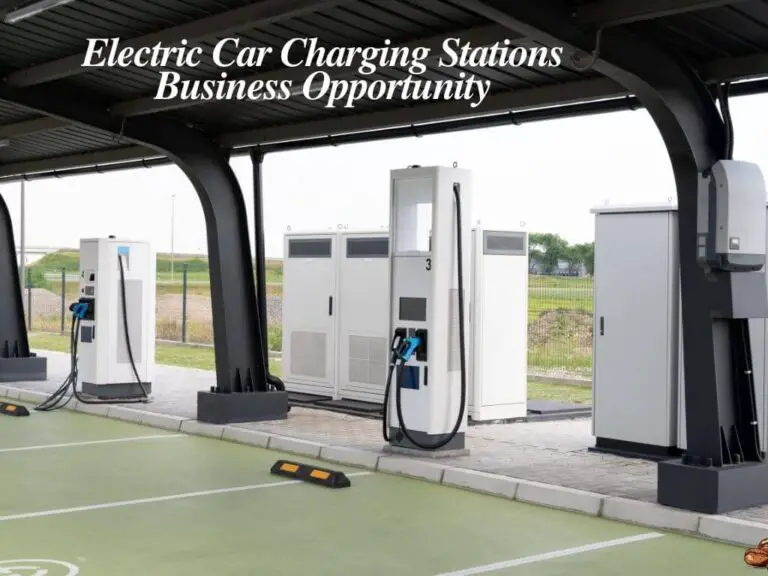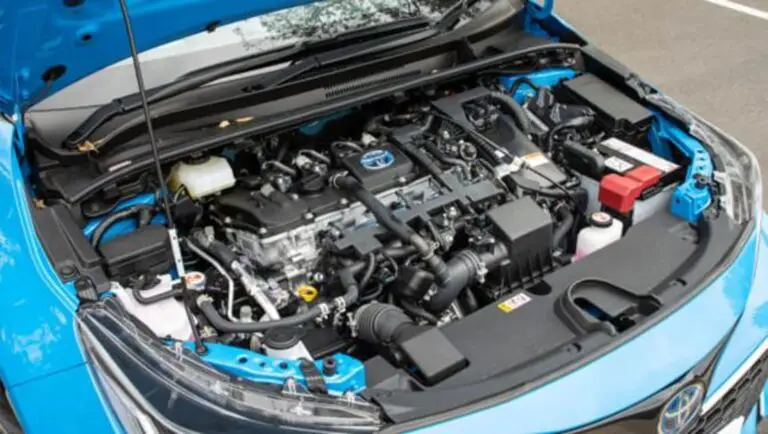Installing an electric car charging station typically costs between $1,000 to $2,500. Electric car owners often find themselves in need of a convenient and efficient way to charge their vehicles at home.
Installing a dedicated charging station offers a reliable solution to this need. The cost of installing an electric car charging station usually ranges from $1,000 to $2,500. This cost includes the equipment, labor, permits, and any necessary electrical upgrades. While the price may vary depending on factors such as the installation location, existing electrical infrastructure, and charger model, it is important to consider the long-term benefits of owning a charging station, including lower fuel costs and increased convenience.
We will explore the factors that influence the cost of installing an electric car charging station.
Understanding The Electric Car Charging Industry
The cost of installing an electric car charging station varies based on factors like installation type, location, and additional equipment. Proper understanding of the electric car charging industry can help make informed decisions regarding installation costs.
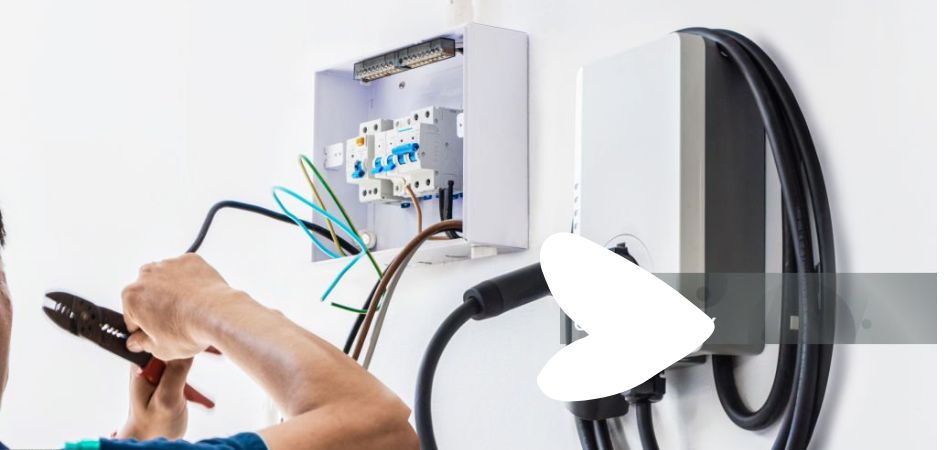
Evolution Of Electric Vehicles And The Need For Charging Stations
With the increasing focus on sustainability and the demand for cleaner modes of transportation, electric vehicles (EVs) have emerged as a promising solution. As more people embrace EVs, the need for an effective charging infrastructure becomes imperative. Understanding the evolution of electric vehicles and the reasons behind the growing need for charging stations is crucial.
In recent years, the electric vehicle market has seen significant growth. This can be attributed to advancements in technology, improved battery range, and efforts to reduce carbon emissions. Automakers around the world have been investing heavily in research and development to produce electric vehicles that can rival their combustion engine counterparts in terms of performance and convenience.
However, the widespread adoption of EVs faces a major obstacle – the availability of charging stations. Without a reliable and extensive charging infrastructure, consumers may hesitate to switch from conventional vehicles to electric ones. To address this concern, governments, automotive manufacturers, and private companies are working together to develop a robust network of electric car charging stations.
Overview Of The Electric Car Charging Infrastructure
Electric car charging infrastructure refers to the network of charging stations and related equipment that support the charging of electric vehicles. These charging stations can be categorized into three primary types:
- Level 1 Charging: This is the most basic level of charging and can be done using a standard household power outlet. It typically provides around 5 miles of range per hour of charging, making it suitable for overnight charging at home or workplaces.
- Level 2 Charging: Level 2 charging requires a dedicated charging station and provides a higher charging rate compared to level 1. These stations use a 240-volt power source and can deliver around 25 miles of range per hour of charging. Level 2 charging is commonly found at public parking lots, shopping centers, and office buildings.
- Level 3 Charging (DC Fast Charging): Level 3 charging, also known as DC fast charging, is the fastest charging option available for electric vehicles. This technology can deliver a significant charge in a short amount of time, usually providing 80% battery capacity in under 30 minutes. Level 3 charging stations are typically found along major highways and in locations where drivers may need a quick charge.
Installing an electric car charging station involves several components, including the charging unit, electrical connections, and access control systems. Each charging station is also equipped with a connector that matches the vehicle’s charging port, ensuring compatibility and ease of use.
The infrastructure is designed to support plug-in hybrid electric vehicles (PHEVs) as well as battery electric vehicles (BEVs).
Key Players In The Electric Car Charging Industry
The electric car charging industry is a rapidly growing sector with several key players driving its development. These players include:
| Electric Car Charging Company | Description |
|---|---|
| Tesla | Tesla is one of the leaders in the electric car industry, not only manufacturing electric vehicles but also establishing its Supercharger network of high-speed charging stations. |
| ChargePoint | ChargePoint is a leading provider of electric vehicle charging networks, offering charging solutions for various locations, including residential, commercial, and public areas. |
| EVgo | EVgo operates one of the largest public DC fast-charging networks in the United States, providing convenient and reliable charging options to EV owners. |
| ABB | ABB is a global technology company that offers a comprehensive portfolio of charging solutions for electric vehicles, ranging from home chargers to high-power fast-charging stations. |
These organizations, along with various other companies and government entities, are actively working to expand the charging infrastructure and ensure that electric vehicle owners have convenient access to charging stations. This collaborative effort is essential to accelerate the adoption of electric vehicles and promote a sustainable future.
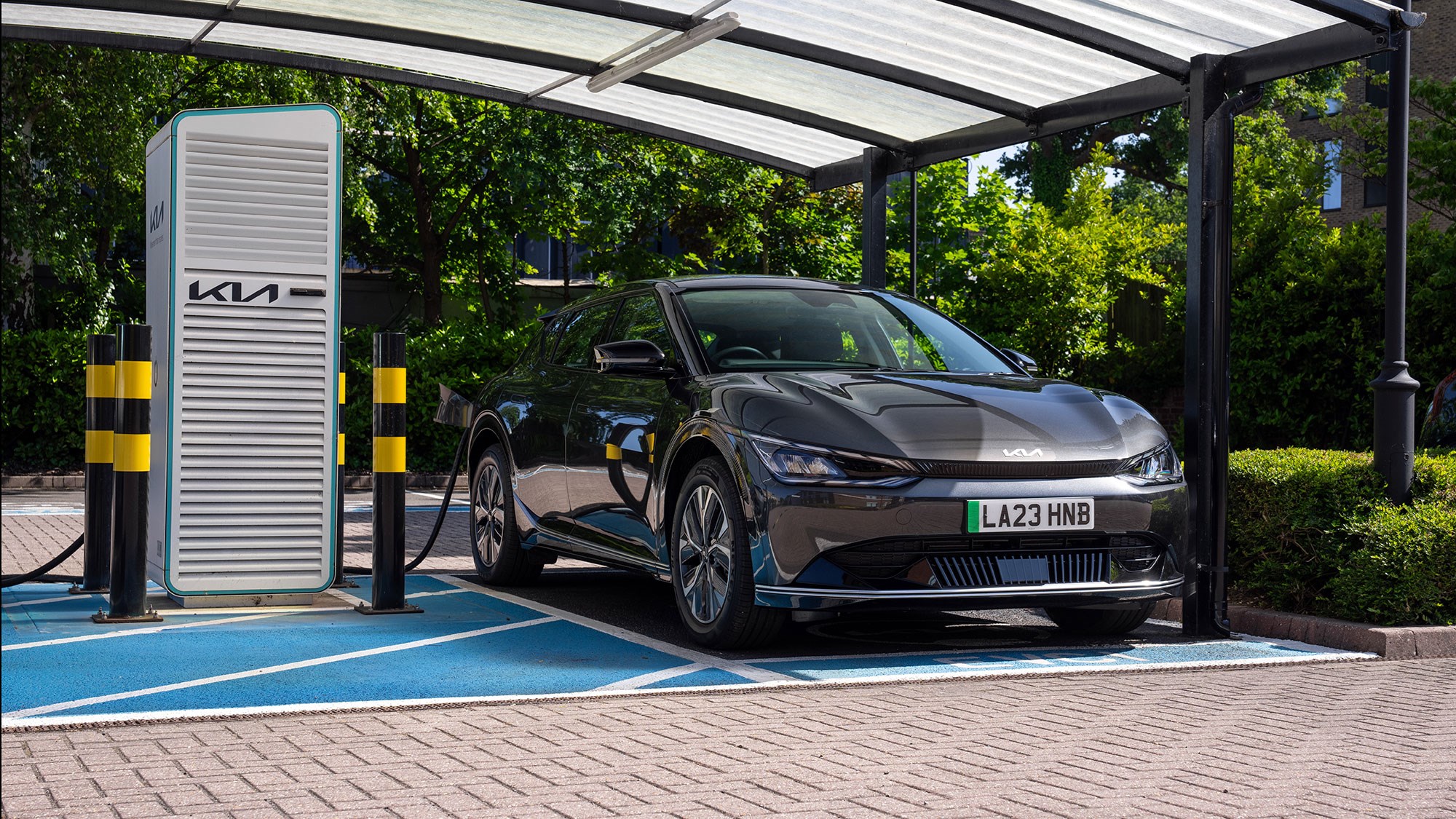
Costs Associated With Installing An Electric Car Charging Station
When considering the switch to an electric vehicle (EV), it is important to take into account the costs associated with installing an electric car charging station at your home or place of business. Installing a charging station is a crucial step in ensuring convenient and efficient charging for your EV. In this article, we will explore the factors to consider when evaluating installation costs, as well as the key components required for an electric car charging station. Furthermore, we will break down the installation costs to provide you with a better understanding of the expenses involved.
Factors To Consider When Evaluating Installation Costs
There are several factors that can influence the installation costs of an electric car charging station:
- Electrical capacity: The electrical capacity of your home or business is a significant determinant of the installation costs. If your existing electrical panel has sufficient capacity to handle the additional load, the installation costs may be lower. However, if upgrades or additional electrical work are needed, the costs can increase.
- Distance from power supply: The distance between the proposed charging station location and the nearest power supply can impact the installation costs. Longer distances may require more extensive wiring, conduits, and trenching.
- Installation location: The location where the charging station will be installed is another factor to consider. For example, mounting a charging station on a wall or installing it in a garage can affect the complexity of the installation and therefore the costs.
Key Components Required For An Electric Car Charging Station
Installing an electric car charging station involves several key components:
- Charging station: The charging station itself is a vital component. There are various types and models available, each with different features and capabilities. The cost of the charging station can vary depending on the brand, power level, and additional functionality.
- Electrical panel upgrades: In some cases, the existing electrical panel may need to be upgraded to accommodate the additional load of the charging station. This can involve increasing the panel’s amperage capacity or adding subpanels.
- Electrical wiring and conduit: Proper electrical wiring and conduit are essential for the safe and efficient operation of an electric car charging station. These components ensure the flow of electricity from the power supply to the charging station.
- Permits and inspections: Depending on your location, you may need to obtain permits and undergo inspections for the installation of an electric car charging station. These costs can vary depending on local regulations and requirements.
Understanding The Cost Breakdown Of Installation
When it comes to the cost breakdown of installing an electric car charging station, it is important to identify the various expenses involved. Here is a breakdown of the potential costs:
| Cost Component | Estimated Cost Range |
|---|---|
| Charging station | $500 – $1,500 |
| Electrical panel upgrades | $1,000 – $3,000 |
| Electrical wiring and conduit | $500 – $1,500 |
| Permits and inspections | $200 – $500 |
| Total | $2,200 – $6,500 |
Please note that the estimated cost ranges provided are for reference purposes only and can vary based on multiple factors such as location, installation complexity, and chosen equipment.
By understanding the factors influencing installation costs, the key components required, and the cost breakdown, you can make an informed decision when installing an electric car charging station. Remember to consult with professionals and obtain multiple quotes from qualified installers to ensure you get the best deal for your specific needs.
Evaluating The True Cost Of Ownership
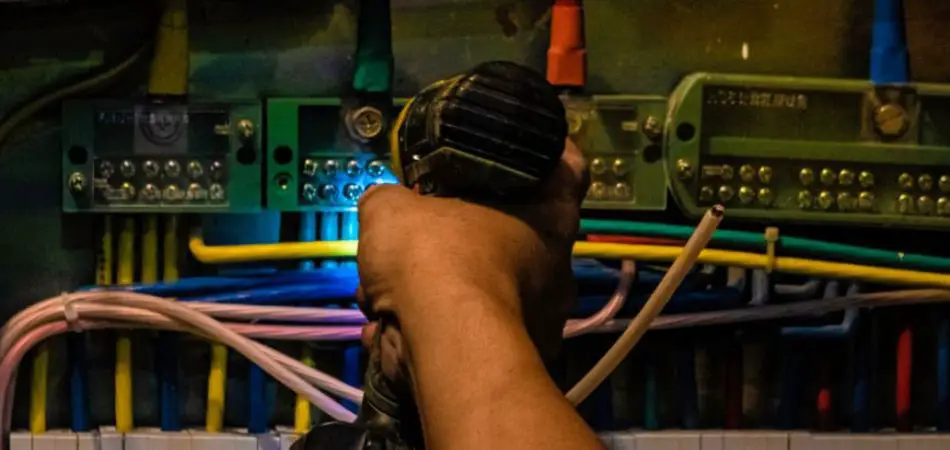
When considering the installation of an electric car charging station, it’s important to evaluate the true cost of ownership. While the benefits of owning an electric vehicle (EV) are well-known, understanding the associated costs is crucial in making an informed decision.
Apart from purchasing and installing the charging station itself, there are hidden expenses and ongoing maintenance costs that may impact the overall expenditure.
Calculating The Total Cost Of Ownership For An Electric Car Charging Station
Calculating the total cost of ownership (TCO) for an electric car charging station involves considering more than just the initial purchase price. To accurately assess the TCO, the following aspects should be taken into account:
- Equipment Costs: These include the cost of the charging station itself, any necessary accessories, and the installation expenses. Ensuring that the station is compatible with your vehicle and meets safety standards is vital to avoid additional costs down the line.
- Electrical Upgrades: Assessing whether your current electrical system can handle the charging station is essential. If not, electrical upgrades may be required, leading to added expenses.
- Permitting and Inspection: Depending on your location, obtaining permits and complying with local regulations may incur fees. Additionally, inspections may be necessary to ensure the charging station meets safety requirements and further increase costs.
- Energy Consumption: Charging an EV will have an impact on your electricity bill. Calculating the expected energy consumption and estimating the associated costs will give you a clearer picture of the long-term expenses.
Identifying Hidden Costs And Ongoing Maintenance Expenses
Hidden costs and ongoing maintenance expenses can significantly impact the overall cost of owning an electric car charging station. Some crucial factors to consider include:
- Networking Fees: Certain charging stations require subscription fees to access the associated network, providing additional features such as remote monitoring, payments, and updates. These fees should be factored into the TCO.
- Maintenance and Repairs: Over time, routine maintenance and potential repairs may be necessary to ensure your charging station functions optimally. Understanding the manufacturer’s recommendations and warranty coverage will help anticipate associated costs.
- Utility Demands: Some utility companies implement demand charges for high-energy users, including EV charging stations. Being aware of these potential charges will prevent unexpected spikes in your electricity bill.
Comparing The Cost Of Different Charging Station Models
When it comes to choosing a charging station model, it’s essential to compare the costs associated with different options. Factors to consider include:
- Level of Power: Charging stations come in various power levels, ranging from slow (Level 1) to rapid (Level 3). While Level 1 stations are more affordable, Level 3 stations provide faster charging speeds but tend to be more expensive.
- Connectivity and Features: Charging station models differ in terms of connectivity options, features, and associated costs. Some stations offer advanced functionalities, such as smartphone integration, payment systems, or network access, which may impact the overall cost.
- Manufacturer’s Reputation: Choosing a charging station from a reputable manufacturer ensures a higher quality product, potentially reducing maintenance and repair costs in the long run.
By evaluating the true cost of ownership, identifying hidden costs, and comparing different charging station models, you can make a more informed decision about installing an electric car charging station.
Understanding the full scope of expenses will allow you to plan accordingly and reap the long-term benefits of owning an electrified vehicle while minimizing unexpected financial burdens.
Navigating Government Incentives And Rebates
Installing an electric car charging station can be a significant investment, but government incentives and rebates can help alleviate some of the financial burden.
By taking advantage of these programs, electric vehicle (EV) owners can not only reduce their installation costs but also contribute to a more sustainable future.
Exploring Available Incentives And Rebates At Federal And State Levels
Both the federal government and individual states offer various incentives and rebates to encourage the adoption of electric vehicles and the installation of charging infrastructure. These incentives can significantly reduce the cost of installing an electric car charging station. Here are some key examples:
| Level | Incentives and Rebates |
|---|---|
| Federal |
|
| State |
|
Requirements And Eligibility Criteria For Financial Support
To qualify for these incentives and rebates, certain requirements and eligibility criteria must be met. While the specific criteria vary by program and location, common factors taken into consideration include:
- The type and power level of the charging station is installed.
- The intended usage of the charging station (public, workplace, residential).
- The location and geographic area where the installation will take place.
- The number of charging stations to be installed.
It’s important to thoroughly research the eligibility criteria and ensure compliance with any necessary permits, inspections, and reporting requirements when applying for financial support.
Case Studies Of Successful Incentive Programs
Several incentive programs have proven successful in encouraging the installation of electric car charging stations. These programs have not only helped businesses and individuals offset their installation costs but also resulted in increased EV adoption and improved accessibility.
Here are a couple of noteworthy examples:
- The California Electric Vehicle Infrastructure Project (CALeVIP) – CALeVIP offers rebates of up to $80,000 for qualifying Level 2 and DC fast charger installations in underserved areas of California.
- The Charge Ahead Colorado program – This initiative provides grants to cover up to 80% of the cost of public EV charging stations located throughout Colorado, ensuring the growth of the state’s EV charging network.
These case studies demonstrate the positive impact that well-designed incentive programs can have on the widespread adoption of electric vehicles and the expansion of charging infrastructure.
Future-proofing Your Charging Station Investment

When it comes to investing in an electric car charging station, it’s essential to future-proof your installation. The world of electric vehicles (EVs) is constantly evolving, with anticipated technological advancements and the introduction of new models.
To ensure that your charging station remains relevant and efficient for years to come, it’s crucial to understand these advancements, evaluate their impact on your charging infrastructure, and ensure scalability and adaptability. Let’s explore each of these aspects in more detail.
Understanding The Anticipated Technological Advancements In Charging Stations
Technological advancements in charging stations are being made at a rapid pace, and it’s important to stay up-to-date with these developments.
By understanding the anticipated advancements, you can make informed decisions about your charging station installation. Some of the key technological advancements expected in charging stations include:
• Higher Charging Power: Charging stations are expected to offer higher power outputs, reducing charging times significantly. This will allow you to recharge your electric vehicle in a matter of minutes rather than hours.
• Smart Charging: Future charging stations will incorporate smart features that allow for automated charging scheduling based on electricity rates, grid demands, and user preferences. This will optimize charging efficiency and reduce energy costs.
• Vehicle-to-Grid Integration: Charging stations of the future will play an integral role in vehicle-to-grid (V2G) integration, enabling EVs to communicate and interact with the power grid. This technology will allow EVs to supply energy back to the grid during peak demand, helping to stabilize the electricity supply and potentially earning vehicle owners rewards.
Evaluating The Impact Of Evolving Electric Vehicle Models On Charging Infrastructure
As electric vehicle technology advances, the models on the market continue to evolve. It is crucial to evaluate how these evolving models impact your charging infrastructure.
Ensuring Scalability And Adaptability Of Charging Station Installations
While installing a charging station, it’s important to ensure scalability and adaptability. Your charging station should be able to accommodate an increasing number of EVs over time and be adaptable to different charging standards and technologies.
Scalability and adaptability ensure that your charging station investment remains valuable as EV adoption rates continue to rise and charging technology evolves.
By future-proofing your charging station investment, you can ensure that your charging infrastructure remains efficient, compatible, and future-ready. Stay informed about anticipated technological advancements, evaluate the impact of evolving electric vehicle models, and ensure the scalability and adaptability of your installation.
With these considerations in mind, you can make the most out of your investment in an electric car charging station.
Frequently Asked Questions Of Cost Of Installing An Electric Car Charging Station
Q1# Is It Profitable To Put In An EV Charging Station?
Installing an EV charging station can be profitable due to the growing demand for electric vehicles. EV owners seek convenient charging locations, potentially attracting more customers to their business. Additionally, government incentives and partnerships with charging networks can increase profitability.
Q2# How Much Does It Cost To Install A 240v Outlet For A Tesla?
The cost to install a 240v outlet for a Tesla varies depending on factors such as location and the existing electrical setup. It can range from $500 to $1,500, including labor and materials. It’s best to consult a licensed electrician for an accurate estimate specific to your situation.
Q3# How Much Is It To Put In A Charging Port For An Electric Car?
The cost of installing a charging port for an electric car varies but typically ranges from $500 to $2,000.
Q4# How Much Does It Cost To Charge An Electric Car At Home?
The cost of charging an electric car at home varies depending on the electricity rates in your region. On average, it can cost between $0. 10 and $0. 30 per kilowatt hour (kWh). To get an accurate estimate, multiply your car’s kWh usage by the electricity rate in your area.
Final Thoughts
Installing an electric car charging station involves several factors that contribute to its overall cost. From the type of charger to the location and electrical infrastructure, the expenses can vary widely. By considering these factors and planning ahead, individuals and businesses can make a wise investment that meets their needs and budget.
Having a clear understanding of the costs involved can help pave the way for a future of sustainable and convenient transportation.

